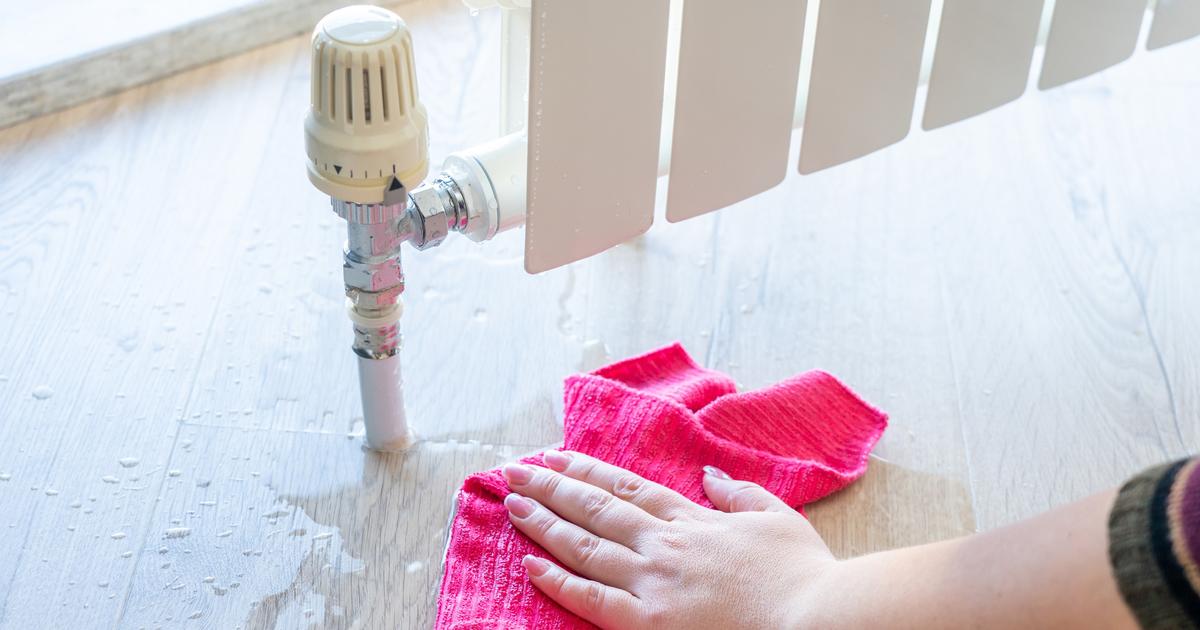Quickly identifying the causes of a leaking radiator is important to prevent any potential damage to your home and boiler.
To discover
What to plant, sow or harvest in March?
Why is my radiator leaking?
Leaking radiators can be an annoying and potentially damaging problem for your central heating system.
Here are the main reasons why your radiator could be leaking:
Seal wear
is common over time.
The joints then lose their tightness, thus causing leaks.
Check the condition of the seals occasionally and replace them if necessary.
A faulty supply hose
can also be the cause of a leak.
Repair leaking pipes quickly to avoid further damage.
A poorly carried out purge
can cause leaks.
Do not hesitate to call a professional to purge your central heating circuit.
Faucets and valves can leak
due to wear or corrosion.
Inspect them regularly.
Air accumulation in the
heating system can lead to leaks.
Purge the radiators at least twice a year to remove air.
A lack of regular maintenance
can contribute to leaks by encouraging the accumulation of residue or sludge.
What to do in the event of a radiator leak?
When you notice a leak in your heating radiator, act quickly to avoid wasting water and protect the efficiency of your heating system.
Here are the steps to follow in the event of a radiator leak:
1) Immediately turn off the power to your central heating and turn off the main water supply to limit damage and prevent any further leaks.
2) Keep calm: Although the leak may impact the operation of the radiator, it does not necessarily mean that a complete replacement is necessary.
In many cases, simple repairs can be carried out, either on your own or by hiring a plumbing professional.
If the leak is coming from the radiator valve, you can often fix the problem yourself by following a few simple steps.
For example, a leak due to worn gaskets, faulty fittings or a loose nut can be repaired without needing professional assistance.
However, if you are unsure whether you can carry out the repairs or have any doubts about the cause of the leak, it is best to contact a qualified heating engineer to ensure an effective and safe repair.
How to Fix a Radiator Leak Yourself?
If you find yourself facing a radiator leak (gas radiator or water radiator) and you wish to undertake repairs yourself, here are the steps to follow:
Immediately turn off the water supply and central heating to limit potential damage, as seen previously.
Bleed the heating system by opening the radiator bleed screw and collecting the water that flows into a container.
Close the screw when clean water begins to flow.
Restore the heating circuit pressure and check the condition of the joints and nuts, tightening them if necessary.
Replace worn or damaged gaskets and consider flushing the radiator if necessary.
If there is a persistent leak in the supply pipe, make a temporary repair with silicone or specialist sealant.
If the leak persists despite your efforts, call a qualified professional to diagnose and repair the problem effectively before having unpleasant surprises with your bill.
In summary, when faced with a radiator leak, it is more than advisable to act quickly.
If you don't feel comfortable doing the repairs yourself or are worried about making the situation worse, call a professional at the first sign of a problem.
Radiator leaks can cause considerable damage, not only to your heating system and your home, but also financially.
Do not delay in reacting to avoid further complications

